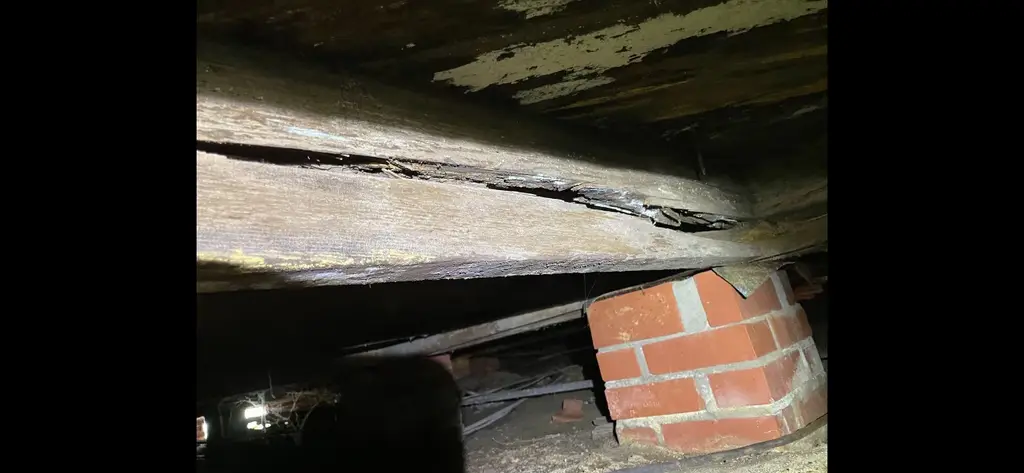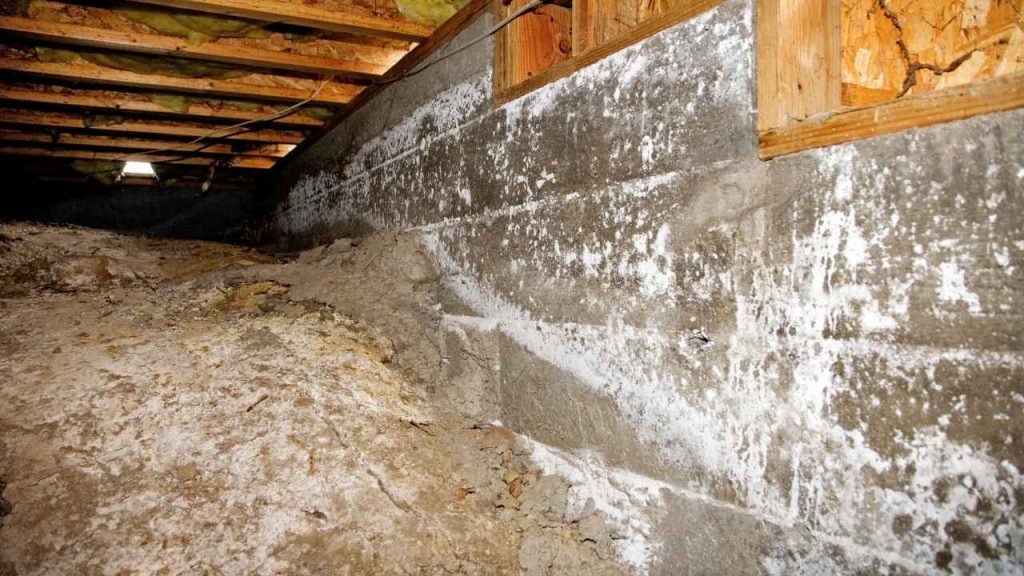Believe it or not, your crawl space might be the reason you’re noticing bad smells, poor air quality, bouncy floors, and even higher energy bills. All of these issues could be coming from problems down in your crawl space.
How does this happen, and why is your crawl space so crucial to your home’s overall health and efficiency? Let’s explore the most common causes of crawl space damage and effective strategies to prevent them. Understanding these issues is key to maintaining your home’s structural integrity, improving indoor air quality, and reducing energy costs.
By addressing these problems early, you can avoid costly repairs and create a safer, healthier living environment for you and your family. Proper solutions, like encapsulation, can make all the difference in protecting your home long-term.
Common Causes of Crawl Spaces Problems
1. The Stack Effect
The stack effect is a natural process where hot air rises and cold air sinks. In your home, this means hot, humid air from the crawl space rises into your living areas, bringing moisture, dirt, mold spores, and allergens with it. This can make your home’s air quality worse and lead to other problems.
To stop this, you can seal or encapsulate the crawl space. This keeps outside air from entering and prevents the stack effect from starting in the first place.
2. Poor Foundation Construction
Between the 1950s and 1990s, many homes were built with doors or vents in their foundation, as it was believed that airflow would keep things dry. Unfortunately, these openings often make matters worse by allowing moisture and air to enter, which accelerates the stack effect. If these vents are broken or unsealed, the damage can become even more significant.
3. Poor Drainage
If the soil around your house doesn’t drain water well, it can lead to crawl space problems. In places like Georgia, where the soil is made up of clay, water doesn’t drain easily. When water pools around your foundation, it can seep into the crawl space, leading to long-term moisture problems.
4. Rotting Support Beams or Floor Joists
When moisture enters this area, it can cause wooden beams and floor joists to rot or develop mold. As the wood weakens, it softens and crumbles. Inspectors often check for this by gently pushing a pencil into the wood—if it penetrates easily, the wood may be compromised.

If your home’s support beams are deteriorating, you may notice bouncy or sagging floors. If this occurs, it’s crucial to seek professional help immediately to prevent serious structural damage.
5. Weather
In places like Georgia, where summers are hot, the clay soil beneath your home can shrink and crack. This weakens the support for your crawl space floor joists and foundation walls, which can lead to serious damage over time.
How to Know If You Have Crawl Spaces Problems
Since crawl spaces are usually dark and out of sight, it’s easy to miss problems happening down there. However, your home will give you signs if something is wrong, such as:
- Musty smells around the house
- Bouncy or sagging floors
- Pests
- High humidity indoors
- Higher energy bills
- Standing water
- Mold

Do any of these sound familiar? If so, your crawl spaces may need attention.
How to Protect Your Crawl Space
One of the best ways to protect your home is through encapsulation. This process seals off the crawl space from harmful outside elements like moisture, pests, and extreme temperatures. Encapsulation involves covering all surfaces with a thick plastic vapor barrier, sealing vents, installing a dehumidifier, and more.
Because damage in this area can occur for many reasons, there are various solutions to help prevent it. Contact Georgia Foundation Solutions to learn more about how encapsulation can safeguard your home from these issues.

